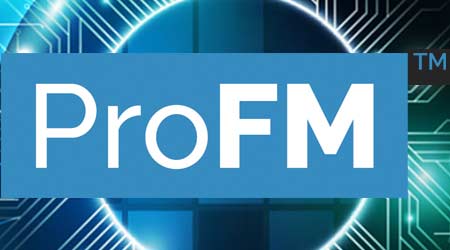Facility Management Expert Explains the ProFM Credential's Value
The ProFM credential is one of the more comprehensive facility management credentials available, says John Hajduck, director of Penn State's Facilities Engineering Institute.
OTHER PARTS OF THIS ARTICLEPt. 1: This Page
Penn State Facilities Engineering Institute Director John Hajduk knows a thing or two about quality facilities management. With more than 20 years of industry experience in both public and private sectors, he is responsible for all services offered at the Institute including energy, engineering, operations and maintenance, facility condition assessments, and education. His breadth of knowledge and experience recently landed him a seat on the ProFMI Commission. He shares some of the highlights of the newly created ProFM credential, which is now available.
What is ProFM and why should facilities management professionals know about it?
ProFM is one of the most comprehensive facility management credentials available. Many other credentials are limited to specific sectors and areas of facility management where as ProFM is applicable to all facility management professionals regardless if they work as a site manager for an O&M contractor, facilities engineer in an industrial plant, or site supervisor for a K-12 school.
Why are you excited about being a part of this program?
The core focus of the program is on facility management education and credentialing. I have been a member of other trade organizations that award credentials and way too often it seemed to me as the facility management professional that the organization’s focus was not on the facility professional nor education.
How is ProFM similar to what Penn State Facilities Engineering Institute offers its clients?
PSFEI’s mission is to merit the public trust by meeting customer facility needs through engineering, information management, education, and applied research, while exploring new and innovative ways to exceed customer expectations. Much like ProFM, PSFEI is unbiased and also offers comprehensive facilities management and engineering education and advisory services.
What lessons have you learned from the PSFEI education programs that can be applied to the ProFM credential?
For educational programs to be successful, I believe it is paramount that the subject matter experts and instructors are of the highest quality and possess working experience in the field of which they are providing instruction. In the digital age, the quantity of information that is available at no or low cost is unprecedented, so one challenge is validating the quality of that information. It seems that many who offer “information, instruction, or knowledge” are not subject matter experts, which is damaging to both the student (professional) and the profession.
What advice would you give to a facility professional who is considering registering for ProFM?
I encourage facility professionals to pursue all the facility management credentials, certificates, or courses by reputable organizations they can. The responsibilities of facility professionals have been changing rapidly over the last 10 to 15 years with the advent of the Building IoT (Internet of Things), increased focus on sustainability and energy, and work space environments. In addition, many skills and core competencies required in facility management such as asset management and operations and maintenance still exist but are becoming a lost art. It’s a great time to set yourself and your organization up for success by brushing up on the new and old.
Where will the courses be offered?
The courses will be offered in a classroom setting or online with two options — self-paced or instructor-led. PSFEI will offer instructor-led ProFM courses, regionally, beginning this year.
Katie Baker is a contributing writer for Trade Press Media Group.
Email comments to tim.rowe@tradepress.com.
Related Topics:












